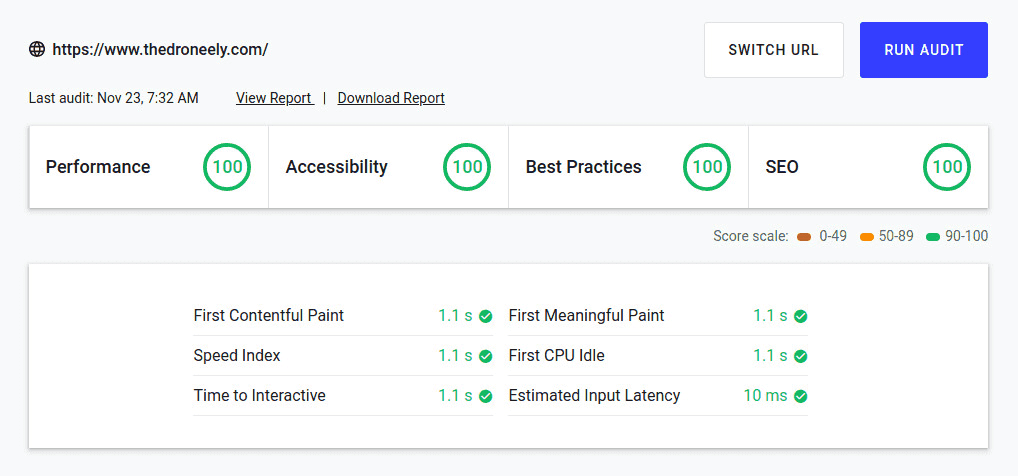Website Auditing Tools

Recently Google introduced a new auditing tool that scans your website and gives it a ranking score out of 100.
Upon closer inspection, it looks like another front end to their Lighthouse tool or PageSpeed Insights application. While very informative, this audit gives you but a general glimpse into the possible issues a website might have.
Advanced website auditing can be extensive or may even incur costs but generally you can get a good idea of whether you’re up to date on certain standards by using a myriad of free online tools.
All websites have real world constraints that may inhibit their ability to meet certain standards but it doesn’t hurt to see if anything can be improved immediately.
Comprehensive Tests
A comprehensive test will try to audit as much of a website as possible, providing both succinct and focused analysis.
https://www.dareboost.com/en — My preferred starting point. This tool will give you a gloriously detailed analysis, even going so far as to pull suspect snippets of code from your website and recommend possible solutions. Highly recommended.
https://observatory.mozilla.org — A very comprehensive and detailed tool. Mozilla’s Observatory will analyze SSL, SSH, content security policy, raw headers, and anything important you can think of to test.
https://webhint.io/ — This is another in depth web scanner. The analysis is detailed and just like Dareboost, it presents suspect code snippets from your website and gives recommendations.
Speed Tests
While a web browser might be the best speed testing tool since it’s trivial to emulate different connection speeds — real world tests are great too.
https://gtmetrix.com — My preferred speed testing tool. It gives Pagespeed and YSlow analysis.
https://tools.pingdom.com — If you need an alternative analysis, Pingdom also provides a nice tool for conducting speed tests.
https://web.dev or https://developers.google.com/web/tools/lighthouse/run or https://developers.google.com/speed/pagespeed/insights — Google has so many iteration of products that all seem to do the same thing, but if you’re looking for a quick and dirty speed analysis, these tools are also great.
Content Security Policy
https://securityheaders.com — General content security policy checker.
https://csp-evaluator.withgoogle.com — Excellent tool for debugging your content security policy rules. Highly recommended.
SSL Checks
SSL (Secure Sockets Layer) is now the de facto standard, especially since search engines may alter a site’s ranking based on its security. SSL isn’t needed in all cases, but when in doubt it’s just better to have this security feature enabled. Activating SSL is just the first step.
https://sslping.com — Very quick SSL check. Covers the basics.
https://www.jitbit.com/sslcheck — An SSL crawler. This tool will check to see if any content throughout all searchable parts of the website are over plain HTTP.
https://www.ssllabs.com/ssltest — SSL Labs is pretty well known. This tool provides a very comprehensive and in depth SSL Analysis.
https://tls.imirhil.fr — SSL cipher suite analysis.
Search Engine Optimization
I’m not much of an SEO believer, but there are tools that can give you a glimpse into the world of SEO (Search Engine Optimization).
http://seositecheckup.com — General SEO checks.
http://www.seowebpageanalyzer.com — Keyword and page content analysis.
Miscellaneous
https://realfavicongenerator.net/favicon_checker — The website icon displayed in your browser tab is important too. This tool will not only check to see if your favicons are set, but will also check all other favicons for operating system platforms including Windows, Android, and Mac OS.
http://www.favicomatic.com/favicon-test — If you’re looking for an even more detailed favicon analysis. This tool will bring you full circle by checking against most if not all of the favicon formats available.
https://gdprchecklist.io — For GDPR Compliance (General Data Protection Regulation).